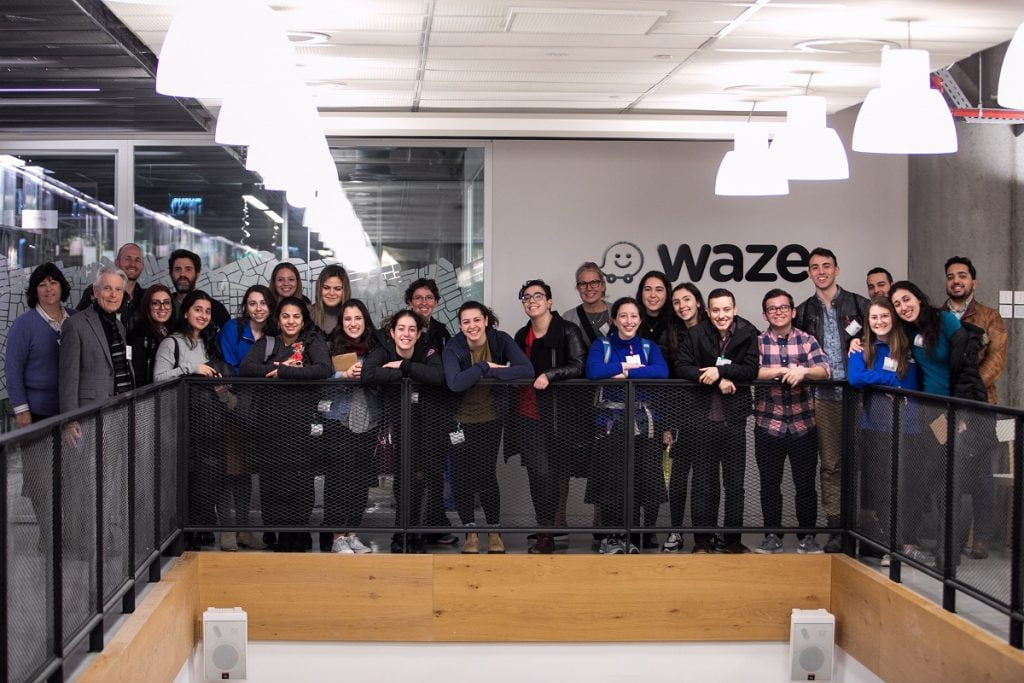Yeshiva University, the private, modern Orthodox research university based in New York City, launched the second cohort of its Innovation Lab last week, in partnership with Gvahim, the Israeli NGO that helps new immigrants to Israel with business and career goals, Cactus Capital, the first student-run university venture capital firm in Israel, and Yazamut 360°, the Entrepreneurship Center of Ben-Gurion University of the Negev (BGU).
The cohort will have 11 participating startups, six of which are alumni of the Gvahim Entrepreneurship Center, and two of which are portfolio companies of Cactus Capital.
The 11 companies participating in the second cohort mark a significant increase from the first cohort, where only five Israeli companies took part in the three-month-long program.
The YU Innovation Lab, which serves as an entrepreneurial hub for Israeli startups and a launching pad for Israeli entrepreneurs in the US market, was launched in May 2019 in collaboration with Yissum, the technology transfer company of The Hebrew University of Jerusalem.
“This growth from the first to the second cohort of our program highlights the need we are filling in helping early-stage Israeli startups explore the US market,” said Dr. Maria Blekher, director of the YU Innovation Lab. “We have added significant expertise to our group of experts and mentors for this cohort, with the goal of enabling program participants to springboard to the front lines of their respective industries.”
Along with companies that have worked with Gvahim and Cactus Capital, companies in the second cohort include those currently working with Incubit Ventures at Gav-Yam Negev High-Tech (Advanced Technologies) Park, alumni of AtoBe Startup Accelerator at Azrieli College of Engineering, and MassChallenge, the global, zero-equity startup accelerator, founded in Boston, Massachusetts with an office in Israel.
The 11 participating Israeli startups are: Caring Eye, a startup developing a multi-sensor device that allows drivers to monitor children in rear-facing car seats and receive alerts whenever the child is at risk of suffocation or has been left in the car unattended; HeroKi, a company providing kidney transplant recipients with the confidence to live an active lifestyle by offering protective wearables; LEELOO, an AI-powered product that offers corporations a solution to improve their employees’ foreign language conversational skills using interactions with a chatbot; Letos, a sensor solution that evaluates spontaneous physiological reactions in real time; Libra@Home, a neuro-rehabilitation company developing a complete portable rehabilitation platform; MoneyCompass, an app using AI to get Americans out of debt, starting with student loans; PointMe, a mobile-enabled offline to online conversion technology for out-of-home advertising, retail, and location services; Rewhiz, a company that analyzes data from a firm’s cloud and SaaS subscriptions through a dashboard; Sightbit, a company harnessing advances in AI and image recognition technology to develop a drowning-prevention system; Truvi, a company that aims to transform disaster response and preparedness with an AI-based decision support system; and WeTreat, a platform that connects therapists and patients in the complementary medicine field.
Related posts

Israeli AI Safety Tool Among TIME’S Best Inventions For 2024

TAU Team Discovers Mechanism To Eliminate Cancerous Tumors

Ashdod Port Investing In Startups As Part Of Innovation Strategy




Facebook comments